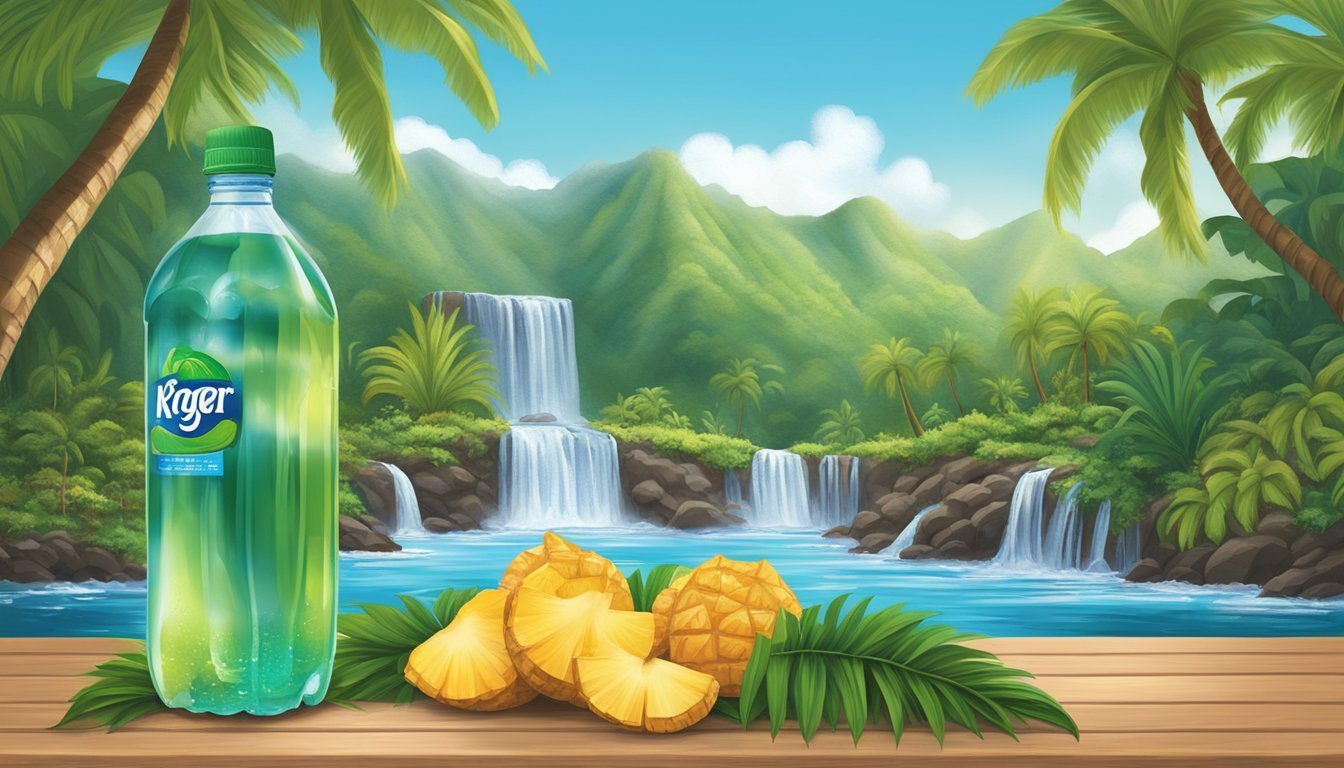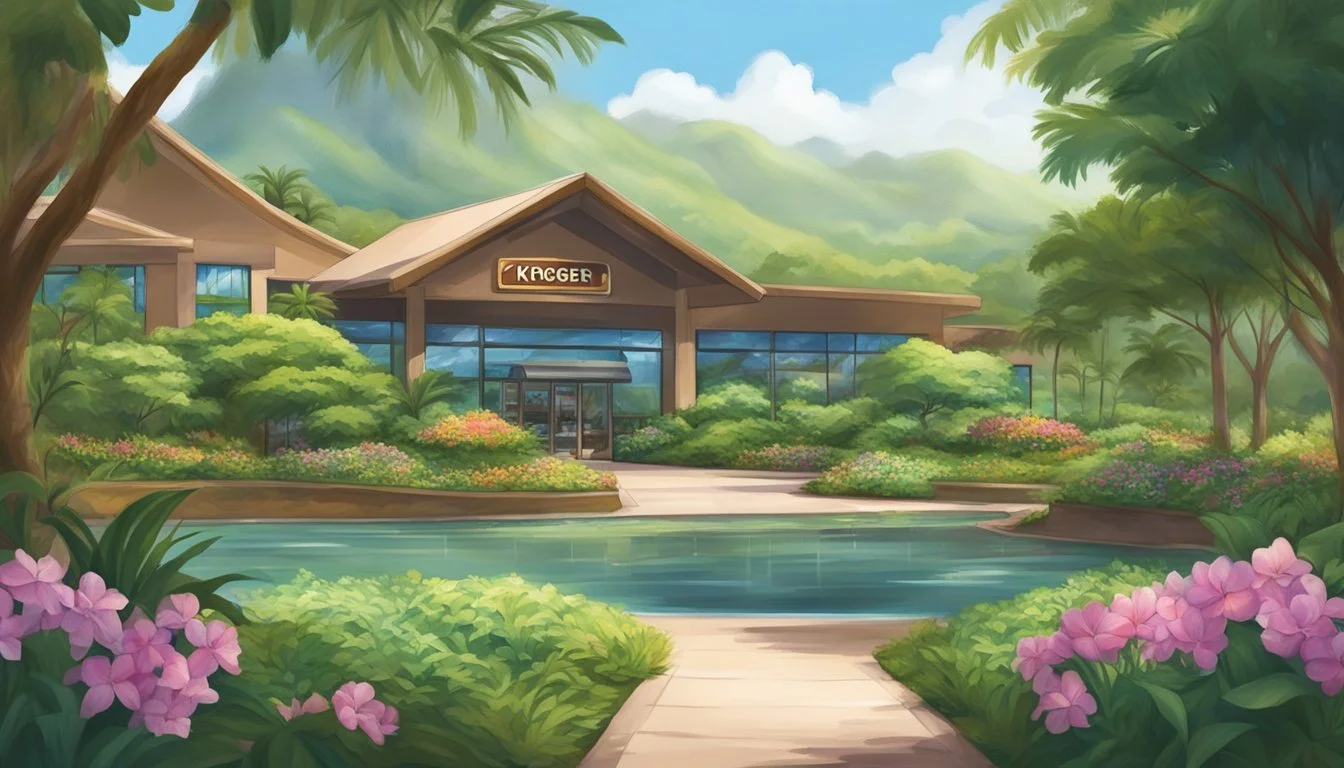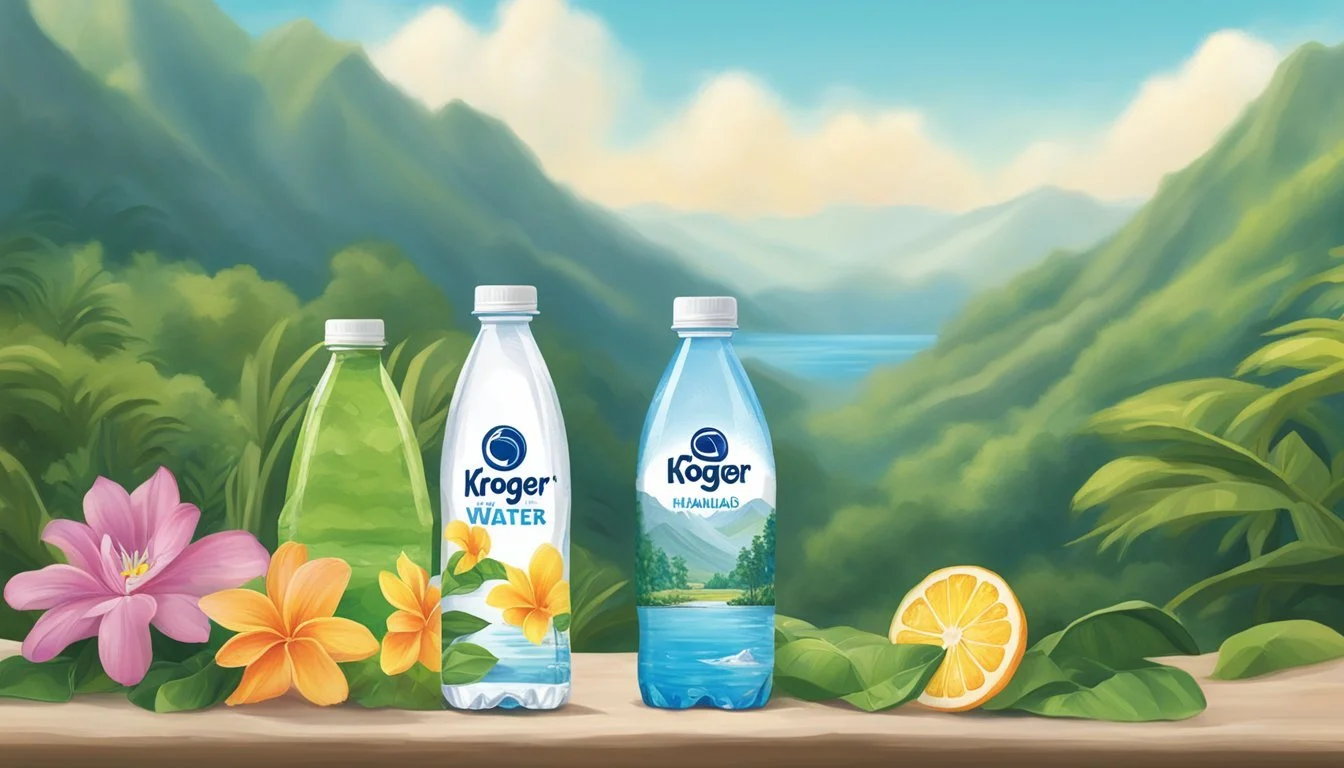Hawaiian Springs vs. Kroger
Comparing the Best Bottled Water Choices
Comparing bottled water brands can often feel overwhelming, but when it comes to Hawaiian Springs and Kroger Bottled Water, there are clear distinctions worth noting. Hawaiian Springs, sourced from the pristine aquifers of Hawaii, boasts a naturally high pH level and unique mineral composition that many find exceptionally refreshing. On the other hand, Kroger Bottled Water adheres strictly to FDA regulations and provides a reliable and budget-friendly option for everyday hydration.
For those prioritizing purity and a naturally alkaline profile, Hawaiian Springs offers an unmatched experience. Meanwhile, Kroger Bottled Water remains a convenient and safe choice, thanks to its adherence to quality standards and the widespread availability of BPA-free options. Each brand has its merits, catering to different needs and preferences among consumers.
Understanding Bottled Water
Bottled water encompasses various types, each with distinct sources and quality standards. This section explores definitions, comparisons, regulatory aspects, environmental impacts, and health considerations.
Defining Bottled Water
Bottled water refers to drinking water that is sealed in bottles for consumption and meets all applicable standards. It comes in several types, including spring water, purified water, mineral water, and sparkling water. Each type has unique characteristics. For example, spring water originates from underground sources and must be collected at the spring or through a borehole tapping the underground formation.
Purified water undergoes extensive treatment processes, such as distillation or reverse osmosis, to remove contaminants. Mineral water is naturally rich in dissolved minerals, making it unique in taste and potential health benefits. Sparkling water contains carbon dioxide, either naturally occurring or added, giving it effervescence.
Comparing Types of Bottled Water
Spring Water: Sourced from natural springs, this water preserves its mineral content and natural taste.
Purified Water: Known for its thorough purification process, it ensures the removal of impurities, making it one of the safest choices.
Mineral Water: Distinguished by its mineral content, which can provide health benefits due to essential minerals like calcium and magnesium.
Sparkling Water: Offers a fizzy experience, often used as a healthier alternative to sugary sodas.
Each type caters to different consumer preferences, with taste, mineral content, and purity playing significant roles in their selection. Brands often highlight these factors to appeal to various consumer groups.
Bottled Water Regulations and Quality Reports
Bottled water is regulated by the FDA in the U.S., ensuring it meets specific safety and quality standards. The FDA oversees everything from source water protection to the processes involved in bottling. Companies must adhere to these regulations for their products to be marketed as safe for consumption.
Quality reports provide transparency about the water's source and testing results. Consumers can find information on contaminants, mineral content, and the overall quality of the water. These reports are often available on brand websites or by request, allowing consumers to make informed choices.
The Environmental Impact of Bottled Water
The environmental concerns of bottled water focus on plastic pollution and resource consumption. Producing plastic bottles requires substantial energy and raw materials. Once used, many bottles end up in landfills or oceans, contributing to significant environmental degradation.
Efforts to mitigate these impacts include recycling programs and the development of biodegradable plastics. Brands are also encouraged to adopt more sustainable practices, such as using recycled materials for their bottles. However, reducing the overall reliance on bottled water is a key strategy for minimizing its environmental footprint.
Health Implications of Bottled Water Consumption
Bottled water is often chosen for its perceived purity and safety compared to tap water. However, concerns remain about contaminants like microplastics and chemicals such as BPA. While many brands now offer BPA-free bottles, the presence of microplastics is harder to eliminate and can pose health risks over time.
On the positive side, bottled water can provide essential minerals and electrolytes, especially in options like mineral water. These components can benefit individuals needing to replenish these substances, such as athletes. Ensuring that the bottled water adheres to stringent safety and quality standards is crucial for maintaining its health benefits.
Profile of Hawaiian Springs
Hawaiian Springs positions itself as premier bottled water sourced from natural springs in Hawaii, highlighting its pristine origin, detailed filtration processes, and health benefits from its mineral content. The company also emphasizes its sustainable and environmentally friendly practices.
Source and Origin of Hawaiian Springs Water
Hawaiian Springs water originates from Oahu’s Big Island, specifically from the slopes of Mauna Loa.
The water is naturally filtered through thousands of feet of volcanic rock, which gives it a distinct purity.
This process enriches the water with unique mineral content that is closely associated with volcanic activity. The company prides itself on this natural filtration method and its source location, which adds to the water's reputation for purity and quality.
Production and Filtration Processes
The production process for Hawaiian Springs water involves minimal human intervention.
Water is collected directly from the natural springs and undergoes a gentle filtration process to remove any contaminants while retaining beneficial minerals.
The company uses advanced technology to ensure water quality and safety, adhering to stringent standards. Sustainability is also a core principle, with environmentally friendly bottling practices aimed at reducing the environmental footprint.
Health Benefits and Mineral Content
Hawaiian Springs water contains a balanced mix of minerals such as calcium, magnesium, and silica, which contribute to its health benefits.
These minerals are naturally occurring and derived from the volcanic rock filtration process.
Regular consumption of this water is promoted for contributing to better hydration due to its clean and crisp taste, which makes it more enjoyable to drink, potentially aiding in higher water intake.
Brand Philosophy and Marketing
Hawaiian Springs markets itself by highlighting the exotic allure of Hawaii and its pristine natural environment.
The brand emphasizes the pure and untouched nature of its water source and its eco-friendly practices.
Marketing materials often feature imagery of Hawaii’s landscapes, aiming to connect the purity of the water with the natural beauty of its origin. The company targets consumers who value natural products and sustainability.
Kroger Bottled Water Overview
Kroger bottled water meets safety standards and comes from a reliable water source. It undergoes thorough filtration processes to ensure quality and taste.
Kroger's Water Source and Filtration
Kroger bottled water typically starts as tap water. It undergoes multiple filtration stages, including reverse osmosis, to remove impurities.
This process ensures that the water is purified and meets FDA standards. The removal of contaminants ensures that the water you drink is clean.
Assessment of Taste and Quality
Consumers report that Kroger bottled water has a neutral taste. This absence of any lingering aftertaste is appreciated by many.
The quality of the water is consistently maintained, making it a preferred choice for those who seek simple, clean hydration.
Kroger Brand's Commitment to Safety
The brand ensures that its bottled water is free from harmful contaminants like BPA and microplastics. Kroger adheres to strict FDA regulations to ensure the safety of its products.
This commitment to safety provides peace of mind for consumers who prioritize health.
Kroger's Position in Bottled Water Industry
Kroger holds a stable position in the bottled water market due to its reputation for reliability and safety. This makes it a competitive choice among well-known brands.
Environmental concerns about plastic waste are addressed by offering BPA-free bottles, supporting both consumer safety and environmental responsibility.
Detailed Comparison
Hawaiian Springs and Kroger bottled waters offer distinct experiences in taste, quality, and environmental impact. This section delves into these differences, providing an in-depth look at what each brand has to offer.
Taste and Palate Comparison
Hawaiian Springs, sourced from a natural spring in Hawaii, boasts a clean, fresh taste. It is lightly mineralized, offering a crisp and smooth palate that reflects the pristine environment of its source.
Kroger bottled water, adhering to FDA regulations, offers a more neutral flavor. Some consumers note a slight aftertaste, though it generally lacks the distinct mineral profile found in Hawaiian Springs.
Taste preference can be subjective, but for those looking for a refreshing and mild palate, Hawaiian Springs often stands out.
Comparative Analysis of Water Quality
Hawaiian Springs prides itself on its naturally high pH level, which is believed to offer various health benefits, such as improved hydration. The water undergoes minimal processing to maintain its purity and mineral content.
Kroger’s water, while meeting all FDA safety standards, often originates from municipal sources and undergoes rigorous purification processes, including reverse osmosis. This ensures it is free from contaminants, though some original mineral contents are lost in the process.
Customers seeking the purest form of natural spring water might prefer Hawaiian Springs, whereas those prioritizing guaranteed safety and cleanliness might lean towards Kroger's offerings.
Packaging and Environmental Footprint
Hawaiian Springs utilizes BPA-free plastic bottles that are recyclable, focusing on sustainability. However, the long transportation distance from Hawaii can contribute to a higher carbon footprint.
Kroger also uses BPA-free materials for most of its bottled waters. While they emphasize environmental responsibility, issues like microplastics and the large-scale use of plastic remain concerns.
Consumers committed to reducing their environmental impact should consider both the recycling practices and the origin of the water they choose. Hawaiian Springs offers a localized, natural spring option with recyclable packaging, while Kroger provides readily available but more industrially processed water.
Price and Availability Across States
Hawaiian Springs is often priced at a premium due to its source and shipping costs. It may not be as readily available in all states, typically found in specialty stores or select supermarket chains.
Kroger, being a large supermarket chain, offers its bottled water at a lower price point. It benefits from widespread distribution across various states, making it more accessible for everyday consumers.
For those seeking a more affordable and easily obtainable option, Kroger’s bottled waters are generally more convenient. In contrast, Hawaiian Springs appeals to those willing to pay extra for quality and source authenticity.
Consumer Perspectives
Many consumers weigh various factors such as taste, brand loyalty, and feedback from other customers when choosing between bottled water brands like Hawaiian Springs and Kroger. These factors influence purchasing decisions and ultimately shape consumer preferences.
Customer Reviews and Feedback
Hawaiian Springs often receives praise for its crisp, clean taste, reflective of its volcanic spring source. Many customers appreciate its refreshing quality and lack of aftertaste.
Kroger branded water, meanwhile, generates mixed reviews. Some commend it for meeting safety standards and being cost-effective, while others express concerns about the presence of microplastics. Overall, price sensitivity and safety are key points in customer feedback for this brand.
Brand Loyalty and Repeat Purchases
When it comes to brand loyalty, Hawaiian Springs attracts a niche market of consumers looking for premium bottled water. These customers tend to stick with the brand due to its unique source and consistent quality.
Kroger water garners loyalty primarily due to its affordability and availability. Customers who prioritize budget over premium qualities often repeatedly purchase Kroger, driven by price promotions and store availability.
Consumer Preferences for Bottled Water
Consumers generally seek bottled water to quench their thirst with a refreshing and clean taste. Hawaiian Springs is preferred by those who value natural sources and purity. Its marketing emphasizes these aspects, drawing in health-conscious buyers.
Kroger’s bottled water appeals to a broader market segment, particularly those focused on cost-effectiveness. Despite some concerns about contaminants, the brand’s adherence to safety standards ensures it remains a popular choice for everyday hydration needs.
Expert Insights
Health experts weigh in on the safety and benefits of bottled water, while environmental specialists evaluate the ecological footprint. Industry professionals discuss trends in the bottled water market, focusing on consumer preferences and quality aspects.
Health Expert Opinions on Bottled Water
Health experts agree that both Hawaiian Springs and Kroger bottled water adhere to FDA regulations, ensuring they meet basic safety and quality standards. Hawaiian Springs is often praised for its high mineral content, including calcium and magnesium, which can benefit bone health.
Kroger bottled water also complies with health guidelines but has faced criticism for potential contaminants such as microplastics and BPA, though many bottles are now BPA-free. Both brands undergo purification processes including reverse osmosis and UV treatment, which remove many impurities.
Environmental Analysis from Specialists
Environmental experts highlight concerns over the ecological impact of plastic bottles. Hawaiian Springs sources water sustainably and uses eco-friendly packaging materials, reducing its carbon footprint. This brand emphasizes minimal environmental disturbance during extraction.
Kroger, on the other hand, uses a variety of plastic packaging, contributing to pollution and waste. Despite their efforts to recycle and reduce plastic usage, the environmental impact remains a significant issue. Specialists recommend consumers consider the entire lifecycle of the bottles when assessing environmental responsibility.
Industry Experts on Bottled Water Trends
Industry insiders note a growing consumer demand for natural and premium bottled water. Hawaiian Springs is positioned as a premium brand, often praised for its crisp, clean taste and high-quality mineral content, sourced from Hawaiian aquifers.
Kroger caters to a more budget-conscious market but offers a reliable and affordable option. Both brands have adapted to trends by making efforts to be transparent about their water sources and purification processes. Innovations in packaging and sustainability practices are expected to shape future market dynamics.
Conclusion and Recommendations
Taste and Quality
In terms of taste, Hawaiian Springs offers a light, clean flavor with a hint of sweetness, derived from its natural spring source in Hawaii. Kroger, on the other hand, follows FDA regulations to ensure safety and quality. However, it may occasionally have a slight tang, potentially due to contaminants reported in research.
Health Considerations
Hawaiian Springs water is bottled at the source, ensuring minimal contamination. Kroger's water, while adhering to safety standards, might contain trace contaminants such as microplastics and BPA. Some bottles are BPA-free now, but plastic packaging remains a health concern.
Environmental Impact
Both brands participate in the environmental burden of plastic waste. Hawaiian Springs focuses on sustainable practices, but packaged water from Hawaii has a higher carbon footprint due to transportation. Kroger's extensive distribution network adds to plastic waste and pollution. Consumers should consider their environmental footprint when choosing between these brands.
Price and Accessibility
Kroger bottled water is more widely available and generally cheaper. It provides a cost-effective option for consumers. Hawaiian Springs, although possibly higher-priced, offers a premium product with potentially natural benefits.
Recommendations
For Taste and Health: Opt for Hawaiian Springs.
For Budget and Accessibility: Choose Kroger.
For Environmental Concerns: Reduce consumption of bottled water where possible and recycle.
Bottom Line
The choice between Hawaiian Springs and Kroger bottled water depends on individual priorities: health, environmental impact, taste, and budget. Both brands offer unique advantages and consumers should weigh these aspects carefully.
More About Hawaiian Springs
Acqua Pana vs Hawaiian Springs: Which Bottled Water is Better?
Aqua Carpatica vs Hawaiian Springs: Which Bottled Water is Better?
Aquafina vs Hawaiian Springs: Which Bottled Water is Better?
Arrowhead vs Hawaiian Springs: Which Bottled Water is Better?
Boxed Water vs Hawaiian Springs: Which Bottled Water is Better?
Castle Rock vs Hawaiian Springs: Which Bottled Water is Better?
Core Hydration vs Hawaiian Springs: Which Bottled Water is Better?
Deer Park vs Hawaiian Springs: Which Bottled Water is Better?
Essentia vs Hawaiian Springs: Which Bottled Water is Better?
Hawaiian Springs vs 1907water: Which Bottled Water is Better?
Hawaiian Springs vs 7-Select: Which Bottled Water is Better?
Hawaiian Springs vs Alkaline88: Which Bottled Water is Better?
Hawaiian Springs vs Antipodes: Which Bottled Water is Better?
Hawaiian Springs vs Big Chill: Which Bottled Water is Better?
Hawaiian Springs vs BodyArmor: Which Bottled Water is Better?
Hawaiian Springs vs Cascade Mountain: Which Bottled Water is Better?
Hawaiian Springs vs CBD Living: Which Bottled Water is Better?
Hawaiian Springs vs Crystal Geyser: Which Bottled Water is Better?
Hawaiian Springs vs Crystal Lake: Which Bottled Water is Better?
Hawaiian Springs vs Essence pH10: Which Bottled Water is Better?
Hawaiian Springs vs Hawaii Volcanic: Which Bottled Water is Better?
Hawaiian Springs vs Kirkland Signature: Which Bottled Water is Better?
Hawaiian Springs vs Liquid Death: Which Bottled Water is Better?
Hawaiian Springs vs Mananalu: Which Bottled Water is Better?
Hawaiian Springs vs Open Water: Which Bottled Water is Better?
Hawaiian Springs vs Proud Source: Which Bottled Water is Better?
Hawaiian Springs vs Pure Life: Which Bottled Water is Better?
Hawaiian Springs vs Purely Sedona: Which Bottled Water is Better?
Hawaiian Springs vs Refreshe: Which Bottled Water is Better?
Hawaiian Springs vs Richard's Rainwater: Which Bottled Water is Better?
Hawaiian Springs vs Simple Truth: Which Bottled Water is Better?
Hawaiian Springs vs Solan de Cabras: Which Bottled Water is Better?
Hawaiian Springs vs Talking Rain AQA: Which Bottled Water is Better?
Hawaiian Springs vs The Well: Which Bottled Water is Better?
Hawaiian Springs vs Tru Alka: Which Bottled Water is Better?
Hawaiian Springs vs Weird Water: Which Bottled Water is Better?
Hawaiian Springs vs Whole Foods 365: Which Bottled Water is Better?
Hawaiian Springs vs Whole Foods Italian Still Mineral water: Which Bottled Water is Better?
Ice Mountain vs Hawaiian Springs: Which Bottled Water is Better?
Icelandic Glacial vs Hawaiian Springs: Which Bottled Water is Better?
Just Water vs Hawaiian Springs: Which Bottled Water is Better?
Mountain Valley Spring Water vs Hawaiian Springs: Which Bottled Water is Better?
Nestle Pure Life vs Hawaiian Springs: Which Bottled Water is Better?
Poland Spring vs Hawaiian Springs: Which Bottled Water is Better?
San Pellegrino vs Hawaiian Springs: Which Bottled Water is Better?
Smartwater vs Hawaiian Springs: Which Bottled Water is Better?
Topo Chico vs Hawaiian Springs: Which Bottled Water is Better?
Zephyrhills vs Hawaiian Springs: Which Bottled Water is Better?





